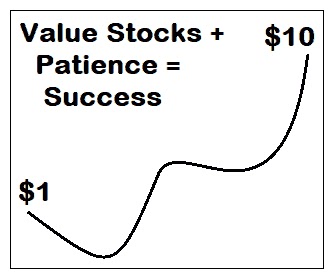Do you want to become a successful investor? Then you’re in the right place. Learn about all the mistakes that beginners make. So, you won’t do the same mistake. And you can double your money as a result.

How to buy stocks for beginners?
Follow this guide carefully to secure your investment and to multiply it (without losing your money).
1. It is hard to earn money in intraday: You have more chances to lose your money than earning money from intraday. So, avoid intraday trading and buy stocks for the long term.
One of the successful investors is Philip Lord Carat. According to him, he never saw a person made wealth by intraday.
“If you don’t want to own a share for 10 years, you shouldn’t have it for 10 minutes.” – Warren Edward Buffett
“Our favorite holding period is forever.” – Warren Edward Buffett
2. Never sell a stock which is successive: It is hard to find a winner stock. If you own shares in a profitable company and if you’re getting good dividends. Then never sell the stock.
Most people sell a profitable share to earn some quick cash and keep the loss-making stock. Don’t do this! You have to do the exact opposite.
Keep the profitable stock and sell the loss-making stock. Keep the winners & sell the losers.
3. Do your own research: Never buy a share based on your friend’s opinion (or) what you hear on the T.V news.
Analysis A to Z about the company. Find how much debt does it have and its annual report.
Analyze the balance sheet, profit & loss, debt, government policy, bad load, and overall sector growth.
Buy a company’s shares only if you can write 3 pages about why the company will succeed in the future.
If you can’t understand the company’s business model then you shouldn’t buy it.
4. Short term shrinking is normal: The short term shrinking of stock value is normal. No stock can always be in an upward trend.
But when your stock shrinks in value then analysis the reason. Identify whether it is temporary or permanent.
Re-analysis why you bought the stock in the first place. And check whether those reasons are still unchanged.
If the long term future of the company is worth then keep the stock. Ignore the short term volatility.
Ignore the small downward moments, it may even be like this for a year or 2. But the stock will bounce back if the company is good.
Only sell the stock, if you think the company has no future.
5. P/E Ratio is not the most important factor: The Price-to-Earnings Ratio is one of the factor which investors check before trading a stock.
But it won’t work for all stocks. A company with a low P/E ratio doesn’t necessarily mean the company is good. And a company with a high P/E ratio doesn’t necessarily mean its a bad one.
The most important factor is “whether the company has the capacity to pay all its debts?”
If you buy a sick company based on its low P/E ratio then you will lose your hard-earned money.
6. Follow your own strategy: Some people buy stocks based on their value. It is known as Value Investing. Some people buy stocks based on their growth.
We recommend you to follow the Value Investing strategy. But if you have an alternative working method then stick to it.
7. Buy a stock even if it’s costly: If you are 100% sure a company has a bright future ahead then you can buy it’s share, even if it is a little bit costly.
But you should know about the company fully. You have to study the company from top to bottom.
8. Not every stock become successful: If you buy 10 stocks with all proper studies and caution. There is a chance for 4 out of 10 to be a failure. The remaining 6 stocks will compromise the loses and make you rich.
9. Buying price matters: Every good company’s stock falls periodically. Make use of it. Buy the share when it is at a low value rather than trading on its peak.
Buy a good company at its lowest price. It can be a small-cap or large-cap. It is not a matter.
10. Ignore the tax: Don’t think too much about the tax. Avoid tax-free investments if they give you low returns. First, think about multiplying your investment and later you can think about the taxes.
Wrapping Up
Do long term investment and avoid intraday trading. Try to invest in the bonds if you have a large amount of money.
Avoid keeping a large amount of money in the savings account (or) in the fixed deposit.
Avoid schemes that give you a low return. And stay away from the forgery schemes that advertise for impossibly high returns.
Tips
Open trading account & Demat account after properly analyzing the brokage charges and other statistics of the broker.